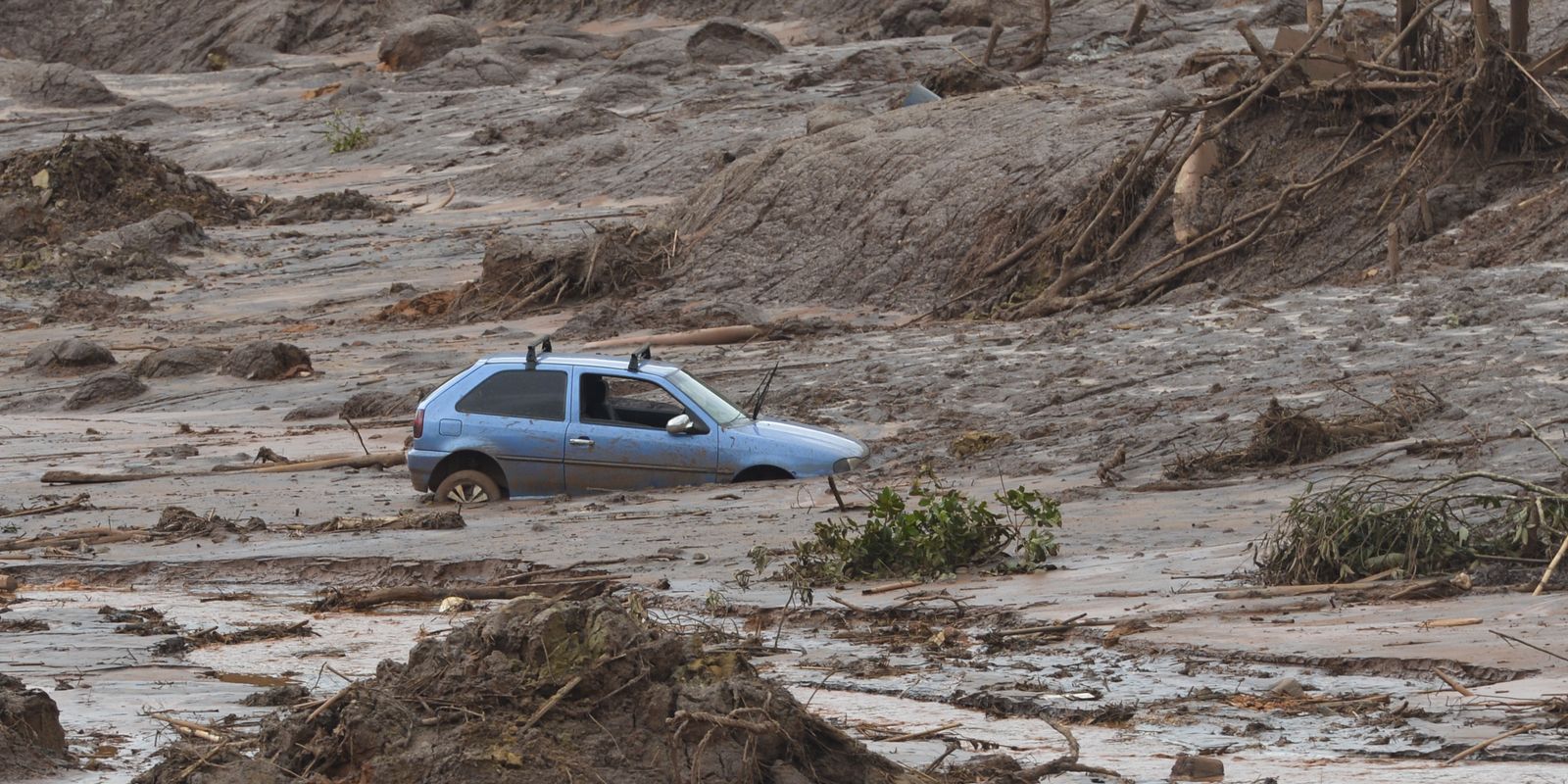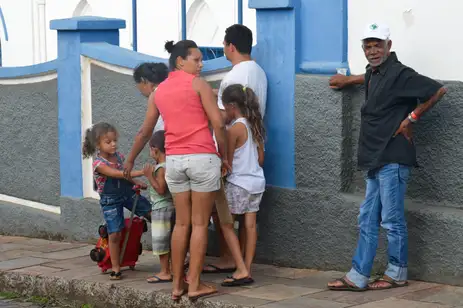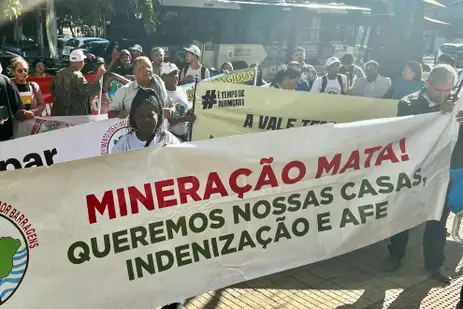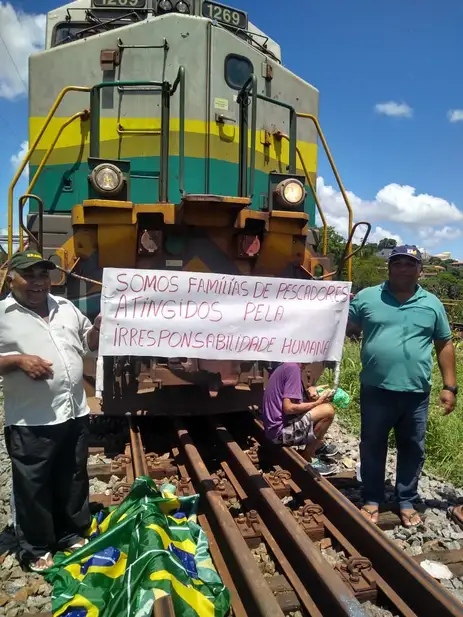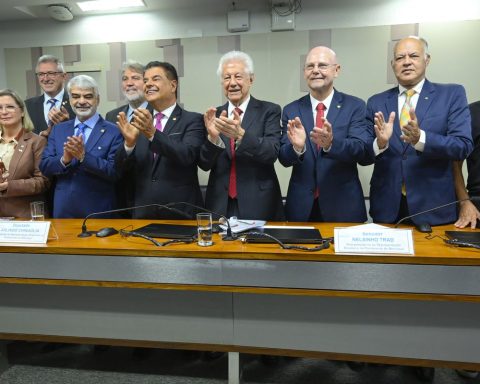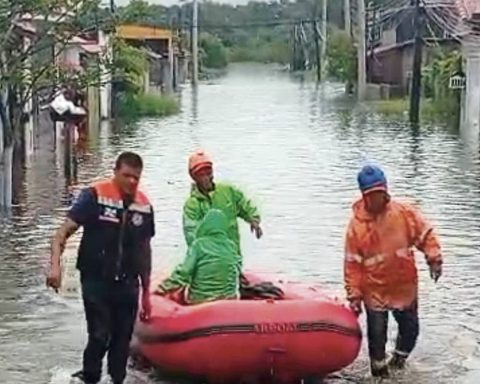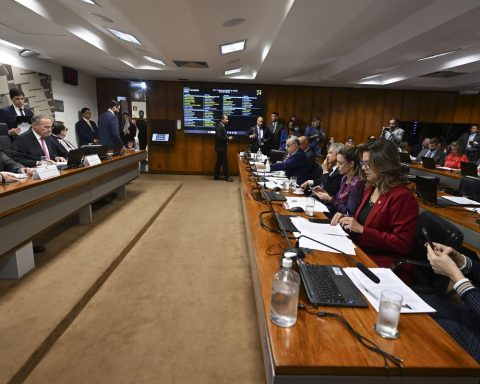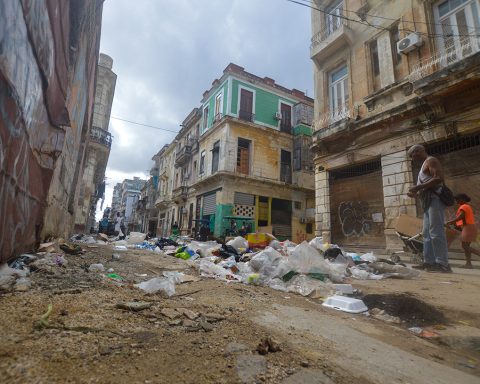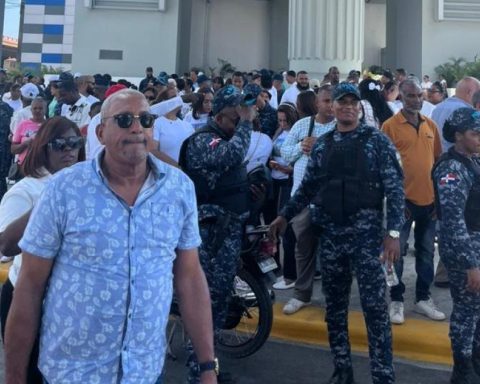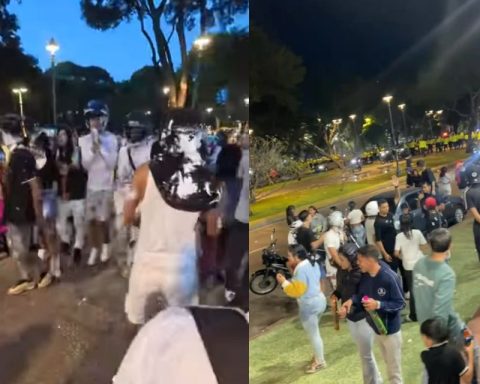More than eight years after the collapse of the Samarco mining company’s dam, victims were finally able to elect their representatives for the different bodies involved in the process of repairing the damages. During a meeting held last weekend in Belo Horizonte, names were chosen to fill more than 30 positions. Their respective substitutes were also defined.
The tragedy will be nine years old on November 5. The rupture of the dam, which was part of a mine in the rural area of Mariana, Minas Gerais, released an avalanche of waste that caused impacts for residents of communities in dozens of municipalities in Minas Gerais and Espírito Santo, along the entire Rio Doce basin. The episode also left 19 dead.
To repair the damage caused, a Transaction and Conduct Adjustment Agreement (TTAC) was signed in 2016 between Samarco, its shareholders Vale and BHP Billiton, the Federal Government and the governments of Minas Gerais and Espírito Santo. More than 40 programs were established, covering a variety of topics such as the reconstruction of destroyed homes, compensation for those affected, support for rural producers, management of waste along the Rio Doce basin, environmental recovery and water supply to the affected municipalities.
The mining companies committed to securing the resources deemed necessary and the Renova Foundation was created to manage all the work. The agreement also established an Interfederative Committee (CIF). Coordinated by the Brazilian Institute of the Environment and Renewable Natural Resources (IBAMA) and composed of representatives from various public agencies, its role is to define guidelines for the reparation actions carried out by the Renova Foundation.
From the beginning, TTAC has been harshly criticized by the Federal Public Ministry (MPF) and the Public Ministry of Minas Gerais (MPMG), as well as by entities representing those affected. One of the main complaints was the lack of participation of victims in the negotiation and also in the implementation of the measures.
In June 2018, an agreement was signed by mining companies and justice institutions to resolve the issue. This is the Conduct Adjustment Term (TAC), which became known as TAC Governança or TAC-Gov. It defined measures to include victims in the governance system responsible for the deliberation processes. To this end, the compositions of the Renova Foundation’s board of trustees and the technical chambers of the Interfederative Committee were changed.
However, only now, more than eight years after the tragedy and six years after the signing of the TAC-Gov, are the vacancies being filled. For the structure of the Renova Foundation, two members were elected to the board of trustees, seven to the advisory board and four to the executive board. Two representatives were also chosen for the Interfederative Committee and two others for each of its ten technical chambers, which deal with specific topics such as health, water security, economy, forest restoration, education, among other matters.
Representatives for the Observers Forum were also elected. Depending on the position, one or two substitutes could also be nominated. Representatives from 16 of the 21 recognized territories participated in the selection process. The affected traditional peoples and communities will still organize the process to fill their vacancies.
Since 2018, the TAC-Gov has been gradually implemented. It provided that in each recognized territory, the affected parties would form committees and also choose an entity to act as technical advisors, whose work would be funded by the mining companies. Some representatives even attended meetings of the CIF technical chambers as guests, listeners or temporary members. However, it was only last year that the consolidation of the committees of all territories was completed, as well as the hiring of all technical advisors. Thus, this is the first time that an election has been held to fill the positions of the affected parties in all instances of the reparation governance system.
A note released by the MPF included an assessment by the Federal Prosecutor, Felipe Augusto de Carvalho, on the entire process. In his view, it was clear from the beginning that the people affected were excluded from the decisions, which violated “the principle of the centrality of the victims’ suffering”. According to him, even after the TAC-Gov, there were difficulties due to obstacles imposed in the judicial sphere by the Renova Foundation, Samarco, Vale and BHP Billiton, making it difficult to form committees of those affected and hire technical advisors.
He also claims that the entity and the three mining companies disregarded CIF’s decisions, which were considered merely opinion-based. “The effectiveness of the TAC-Gov was increasingly delayed. Now, finally, we have achieved the conditions for these people and communities, through their representatives, to finally have an active voice in various decision-making and consultative bodies of the reparation process,” he states.
When contacted by Agência Brasil, the mining companies did not comment on the matter. In a statement, the Renova Foundation said it recognizes the importance of collective participation in repairing the damage caused by the dam collapse. “The selection of community representatives for the governance system is provided for in the TAC-Gov and its implementation is being monitored by the justice institutions, responsible for coordinating and organizing the meeting,” the text adds. The entity did not comment on the criticisms of the MPF prosecutor.
Limited participation
Despite their inclusion, mining companies continue to hold the majority of seats on the Renova Foundation’s Board of Trustees. Samarco, Vale and BHP Billiton nominated six of the nine names. Among the others, two are victims’ representatives and one was nominated by the Interfederative Committee.
The reparation model implemented in the tragedy, with the creation of the Renova Foundation to manage all measures, is today considered unsuccessful by the governments involved and also by the justice institutions. Currently, more than 85 thousand lawsuits regarding the tragedy are being processed in the Brazilian Judiciary, which involve various topics such as the reconstruction of districts, compensation, recognition of victimsenvironmental damage, etc. Negotiations for renegotiate the agreement The search for a solution to this legal liability has been dragging on for more than two years, but the values offered by the mining companies have not yet met the governments’ expectations.
At the same event in which they elected their representatives, the affected people approved an open letter. In it, they criticize the lack of participation in the negotiations for the new agreement. They lament that the discussions are being held in secret and without the presence of the affected people. The text also points out that, even with the elections of the representatives, there is little to celebrate. According to the affected people, the current model makes it impossible for the communities to take a leading role in the search for solutions to their own problems, which involve a variety of issues such as water and food contamination, floods, invisibility, water insecurity, mental illness, increased socioeconomic vulnerability, changes in lifestyles, etc.
“The participatory process continues to be flawed. First, because it is imposed without discussion, from the top down, with the most interested parties, those affected who have been enduring and suffering the consequences of this crime for almost 10 years. Second, because the spaces for participation are few, insufficient and do not allow for representation of all the peoples and categories affected, given the minority position of those affected. While the affected people jostle for a few governance positions, criminal companies continue to profit and violate the rights of the people, intensifying the trail of damage left by the collapse.”
Although the limitations persist, the State Association for Environmental and Social Defense (Aedas), one of the entities providing technical support to victims of the tragedy, released a statement in which it considers that the election of representatives strengthens the right to participate. The text also highlights that this right is now provided for in the National Policy for the Rights of Populations Affected by Dams (PNAB), as Federal Law 14,755, approved last year, became known.
